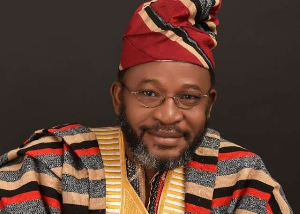– PART II
By Maxwell Oteng,
Thought #3. Pay Attention to Microfoundation of the Economy The formula for economic success is no secret: the recipe comprises reliable energy supplies, well-developed network of transportation, viable telecommunication infrastructure, a well-developed and trusted financial system; deep human and social capital bases; maintaining macroeconomic stability; protection of private property rights, and enforcement of contracts; integration into the global economy; diversification of economic portfolio; provision of the right private incentives to maintain productive dynamism in the economy; maintenance of social cohesion and political stability and maybe few others.
But to arrive at the appropriate recipe you would have to go beyond the achievement of optimal combination of society’s economic resources. One of my favorite economists is Albert O. Hirschman. He’s known for his influential ideas and schemata in Development Economics (think unbalanced growth theory) and Political Economy (“Exit, Voice and Loyalty: Responses to Decline in Firms, Organizations, and States” – if you haven’t read it I recommend you take a look at it). Hirschman has aptly argued that economic development does not only depend on the optimal combination of production factors, but also on mobilizing hidden and under-utilized capabilities and assets on the ground, step by step, searching for bottom-up complementarities.
Unfortunately, in the past few decades, much of the discourse in economic development endeavors, especially the Washington-consensus prescriptions for our seemingly entrenched economic malaise has centered on macroeconomic adjustments. While these macroeconomic adjustments were necessary in many respects, they were done with little or no regard for the microeconomic adjustments that should have complemented those efforts. The results of this neglect (whether intentionally or unintentionally) is that while some of the key macroeconomic variables of our economy have shown significant improvements from their 1980s-1990s benchmarks, sustained economic growth that can parachute the country to a higher plane of economic transformation has been anemic. We should therefore begin to pay serious attention to micro-foundation of economy. Obviously, there are so many micro areas of the economy that deserve attention. However three of them require special mention, namely availability mentoring services, rental services and mobile services. Below I briefly I discuss how these services can help address some of the economic challenges our country faces. i. Leasing/Rental Services: Some of the economic challenges facing our country (almost all developing economies) include capital market imperfections, limited access to capital markets, low household and business savings, and limited access to entrepreneurial capital for business development and job creation. In places where capital market imperfections are pervasive, and savings are low, the availability of leasing services can help overcome some of these challenges. Leasing is a medium-term financing instrument for the procurement of durable goods – machinery, equipment, vehicles and properties. For new, small and medium-sized enterprises (SMEs) that don’t have a lengthy credit history or a significant asset base for collateral, leasing is a convenient and useful way to expand or grow businesses. Leasing plays very important roles in developed countries by helping SMEs to increase their asset base, expand job creation and introduce dynamism into their economies through innovation and competition. These advantages can be replicated in Ghana if we develop a functional leasing sector. According to the International Finance Corporation, IFC, leasing offers significant advantages to all parties involved. For a lessee with limited financial resources and no collateral such as our farmers, fishermen, artisans, traders, Trotro owners, etc, leasing can help them acquire equipment to increase the productive capacity of their enterprises and therefore their profitability. For lessors, by maintaining ownership of the leased asset and control of their investment, the financial risk is less than providing working capital loans. For suppliers, leasing expands the market base by providing businesses a mechanism to purchase equipment without having significant upfront cost. Leasing is an effective mechanism to ensure sustained economic growth as well as diversify economic activity. It provides SMEs an opportunity to modernize their production. A vibrant leasing sector can be a strong and reliable engine of economic development of Ghana. Developing a vibrant leasing sector may require a private-government partnership in some cases. In all cases, though, it will require that the government assume a leading role by creating the appropriate incentives entice the private businesses to devote their scarce economic resources to this sector.
ii. Mentoring Services: The positive role of mentorship is well documented. The literature of mentorship indicates that individuals with mentors receive more information (Dreher & Ash, 1990, Scandura, 1992, Ragins and Kram, 2007), have higher incomes (Dreher & Ash 1990; Whitely, Dougherty, and Dreher, 1991), and tend to have more career satisfaction (Fagenson, 1988) than those without mentors. They are associated with a more positive job experience, and perceive having more employment alternatives (Baugh, Lankau, and Schandura, 1996). In a larger sense, successful mentoring has positive organizational outcomes (Hegstad (1999)). Not only do mentors provide career support to their protégé (through, among other things, coaching, sponsorship, helping develop career and life strategies, providing frank feedback and enforcing accountability), they also provide psychosocial support (helping protégés cultivate a sense of competence, self-esteem, self-confidence, identity, and aspirations and hope for success). While I don’t have any scientific data, it’s probably no exaggeration to say that given the opportunity a lot of Ghanaians would be interested in becoming entrepreneurs. However, being an entrepreneur involves taking risks. The important thing though is that you want to minimize your risks as much as you can. For most aspiring entrepreneurs that are first-timers, there may be no fountain of entrepreneurship experiences in their families to drink from. For these people the entrepreneurial risk regime they face can be daunting and deterring, and therefore the availability of, and accessibility to mentoring services would help them minimize risks and costs associated with business initiatives they wish to embark upon. For this reason, if I were the President of Ghana, I would set in motion a mechanism of establish a Corps of Mentors in every district and in our secondary and tertiary institutions. This Corps of Mentors will leverage local resources as much as possible by relying on successful people in the respective districts as mentors.
iii. Mobile Services: In a similar vein, mobile services can revolutionized economic activity in our country. Mobile telephone services, despite all the hiccups, are classic examples of the significant role mobile services can play to spur economic activity. But no sector offers a greater potential for increased economic activity, improved productivity and healthy populace through mobile services than the health sector. Our health system, as it’s currently structured with hospitals and clinics mainly housed in the big cities, and few district capitals, offers very limited opportunities for most people in rural communities to have regular access to specialists for simple medical exams and check-ups. These people simply cannot afford the cost of trekking back and forth to the city-and-town centers for these services even if the National Health Insurance program would cover the cost of these services. The results of this is that we have significant amount of “dead men and women” walking in our communities because they’re carrying undiagnosed potentially fatal illnesses. Against this backdrop, this is what I’ll do if I were the President: I’ll propose and seek to establish a community-based health infrastructure that is predicated on mobile health clinics. In effect, through these mobile services, I will bring health services to the doorsteps of rural communities. To make these clinics effective, will propose a crash-training program with on-going skills-upgrading mechanism for Health Assistants. We can start with a six-month crash course; then require those who come out successfully to do three-month skills-upgrading training for three more years. The eventual goal will be to let these Health Assistants graduate to become nurses. These Health Assistants will be required to meet some minimum requirements to be qualified to do basic medical check-ups and offer basic prescription and consultative advice for non-major health issues such as cold and anything that can be treated with over-the-counter medication. Not only will it be easier to broaden accessibility and availability of health services (and perhaps less costly to do so) through mobile health clinics than building health clinics on every community, but also through the Health Assistants program there is a great potential to create a lot of jobs to absorb the teeming unemployed youth into our productive resources pool.
Based on the discussions above, and given the experiences of other countries – in both developed and developing worlds - strengthening the micro-foundations of our economy through such activities as mentoring, leasing/rental and mobile services may just be the engine needed to increase economic development.
So what are your unconventional ideas or thoughts for moving Ghana forward? Share them. Let the national conversation about ideas begin!
TO BE CONTINUED
Opinions of Thursday, 20 August 2009
Columnist: Oteng, Maxwell













